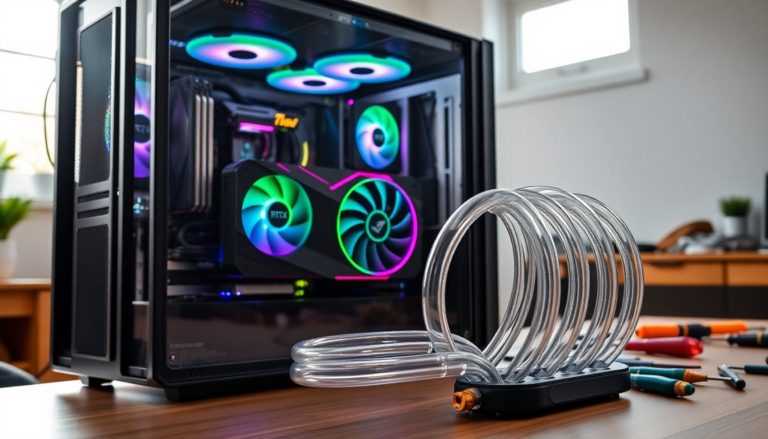Argomenti trattati
As the demand for high-performance graphics cards keeps skyrocketing, so does the risk of thermal damage, especially in systems sporting powerful GPUs like the RTX 5090. Recently, a DIY project shared on a popular forum has shone a light on this pressing issue, offering a fresh perspective on how to tackle the risks linked to high power draw components. In this article, we’ll explore the innovative solutions that tech enthusiasts are crafting to shield their systems from potential thermal failures.
Understanding the Risks of High-Power GPUs
With the launch of formidable graphics cards like the Nvidia RTX 4090 and its successor, the RTX 5090, we’ve seen a troubling uptick in reports of melting power connectors. These incidents underscore a significant flaw in how power supply units (PSUs) are designed, particularly in their connections to GPUs. The primary danger stems from overcurrent events, which can lead to overheating and, ultimately, component failure. Who wouldn’t be anxious about their pricey gaming rig going up in smoke?
Although there are plenty of off-the-shelf solutions available that aim to monitor and manage power draw, many PC enthusiasts are opting for custom fixes to keep their systems running smoothly under heavy loads. This DIY approach allows users to tailor their solutions to their unique setups, giving them greater flexibility and control over performance. Isn’t it fascinating how creativity can lead to better functionality?
Analyzing the DIY “RTX 5090 Countermeasures”
A Reddit user, who goes by the name Electronic_Ear6797, has recently grabbed the spotlight with their ingenious “RTX 5090 Countermeasures” system. This intricate setup is designed to prevent damage by signaling the PSU to shut down when it detects an overcurrent event. At first glance, the design may seem a bit chaotic, but it’s grounded in solid engineering principles aimed at protecting those pricey components.
The system incorporates a variety of off-the-shelf components, including a Zotac Gaming GeForce RTX 5090 AMP Extreme Infinity GPU and a Corsair HXi Series HX1500i PSU. To amp up the protection, specialized hardware such as a Mitsubishi Electric PLC and current sensors have been seamlessly integrated into the design, showcasing the creator’s technical skills. Talk about taking tech to the next level!
However, the reception of this DIY project has sparked a mixed bag of opinions. While some enthusiasts applaud the creativity behind the design, others raise eyebrows at its practicality and aesthetics. This debate opens a larger dialogue within the community about finding the right balance between performance, safety, and user experience. What do you think—does functionality trump form?
The Future of GPU Thermal Management
As technology continues to advance, manufacturers are also feeling the pressure to keep pace with the growing demands placed on their components. The alarming incidents of melting power connectors serve as a wake-up call for the industry, pushing designers to innovate and implement more reliable power management solutions. Will we see major changes on the horizon?
The DIY enthusiasm exhibited by users like Electronic_Ear6797 is a testament to the community’s dedication to pushing the limits of what’s possible in PC gaming and performance. While off-the-shelf solutions like Thermal Grizzly’s WireView series provide convenience and reliability, the spirit of innovation remains strong among enthusiasts willing to experiment and craft bespoke systems. Isn’t it inspiring to see such passion in the tech community?
In conclusion, the landscape of GPU thermal management is evolving at breakneck speed. As both DIY enthusiasts and manufacturers work towards enhanced safety and performance, it’s clear that creative solutions will continue to play a vital role in protecting high-performance computers from the risks associated with increasing power demands. How will you safeguard your setup?

